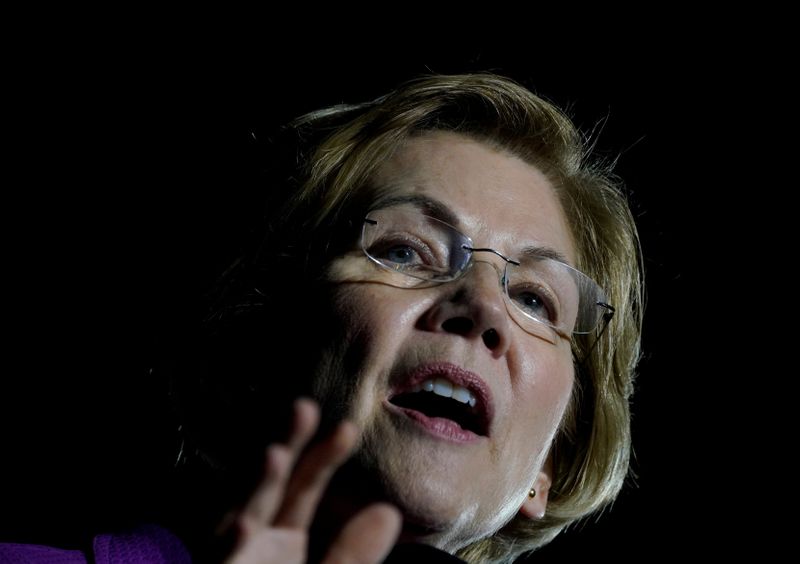This post was originally published on this site
https://i-invdn-com.akamaized.net/trkd-images/LYNXMPEG8G1VZ_L.jpg
WASHINGTON (Reuters) – U.S. Senator Elizabeth Warren on Thursday blasted U.S. business leaders, including JPMorgan Chase & Co’s (N:JPM) Jamie Dimon and Walmart’s (N:WMT) Doug McMillon, for falling short on a “splashy” promise to look beyond profits when running their businesses.
Writing to the CEOs in their capacity as former and current chairs respectively of the Business Roundtable, Warren, a Democrat, said the country’s top business group had been lobbying for “narrow, short-term interests” rather than the broad group of stakeholders it promised to serve last year.
Notably, the Roundtable had lobbied for legislation granting companies immunity should workers contract COVID-19 on the job, and had opposed extending unemployment benefits to workers, Warren said, citing a new report based on federal lobbying records.
“Rebuilding our economy so that workers, customers, and communities are able to share in prosperity requires real change in the way decisions are made in corporate headquarters and on Wall Street, not just the vague, empty-worded press releases that you have issued,” Warren wrote in the letter, first reported by Reuters.
Spokespeople for JPMorgan, Walmart and the Business Roundtable did not immediately respond to requests for comment.
The Massachusetts senator’s broadside turns up the spotlight on corporate leaders, who are increasingly being called upon by workers and politicians to confront pressing issues such as climate change, racial justice and income inequality.
Last August, over 180 Roundtable members comprising CEOs of top companies such as Amazon (O:AMZN), Apple (O:AAPL), and Coca-Cola (N:KO) pledged to end its 30-year stance that corporations exist to primarily serve shareholders, and vowed to do more to support workers, their communities, and the environment.
On Wednesday, the group also promised to fight climate change by backing market-based carbon pricing and slashing U.S. greenhouse gas emissions.
Warren, a progressive former presidential candidate, wrote to the Roundtable’s members in October asking for details on how they planned to fulfill last year’s pledge but got “boilerplate” responses and anecdotal evidence, she said on Thursday. She added that Dimon and McMillon did not directly reply.
“It is difficult to identify how any of these commitments were widely operationalized, and corporate actions instead indicate that there may have been no intention to do so,” she wrote Thursday.
Corporate America’s response to the pandemic belies the Roundtable’s pledge, she said, with companies failing to protect and invest in essential workers, disproportionately hurting minorities at a time when racial justice should be a priority.
Business leaders have also been slow to cut their pay even as they have laid off workers due to the pandemic, she added.

